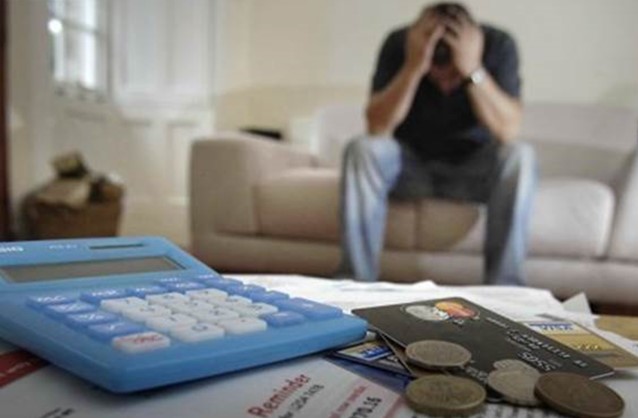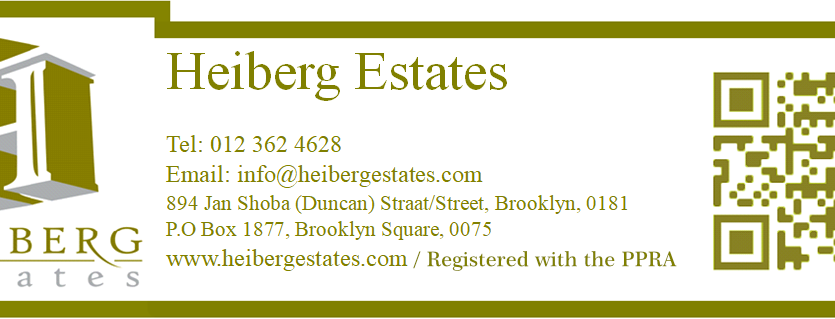HEIBERG ESTATES NEWSLETTER: JUNE 2023

Dear Property Partners
Despite the traditional annual property cycle always being on a downwards trend during the colder winter months, a slower-than-normal property market is still the status quo – both in sales volumes as well as sideways moving property prices. All to be expected due to so many outside factors that have been under discussion for some time now and in specific referral to our extremely low 0.4% economic growth rate, our general erratic economic- and political state of affairs, and of course challenges across the board with ESKOM and load shedding, not to forget escalating day-to-day basic costs of living.
A huge and very visible blow on our fragile property market is the recent series of interest rate increases putting huge downward pressure on affordability and people’s ability to invest in property, especially in the lower property price ranges. At this stage predictions over a broad front are that the average economic growth rate for this year is only going to be between 0.1% and 0.3% and certainly not bearing well especially looking at increasing unemployment and in general putting a damper on people’s appetite and ability to invest in property. The International Monetary Fund is less optimistic about our economic growth prospects and predicts a 0.1% GDP growth this year due to our electricity fiasco, the worldwide weakening demand for commodities, and a lower average world economic growth rate expected for 2023.
At least there is some positive news with the announcement of Stats SA that our inflation rate for last month, was recorded at 6.3%, the lowest in the past 13 months since April 2022. Due to rising inflation, the interest rate has been increased by our SARB ten times and in total with 475 basic points since November 2021. The same number of increases was introduced by the Federal Reserve Bank (FED) in the USA. The FED increased their rate with 500 basic points since March 2022 in its quest to curb inflation that was recorded at 9.1% on June 2022 – the highest recorded in the USA in 41 years. The FED did not as expected increase the interest again this month, but it might do so soon again with inevitably an impact on our economy as it will lead to a bigger outflow of capital causing the Rand to further deteriorate and forcing the hand of the SARB to most probably follow suit – which as proven with previous rate increases, will add further downwards pressure on our property market across the board.
Unfortunately, and in spite of the SA Reserve Bank’s ideal band of keeping the interest rate between 3% and 6%, upward inflationary pressure is expected to continue for some time to come due to load shedding and our low rand exchange rate putting upwards price pressure on imported goods. The full and cumulative effect of the series of interest rate increases is still to be established as there is a delay of two to three quarters to really be in a position to establish the impact of it on our inflation rate. Fortunately, the SA Rand is gradually recovering after its lowest exchange level against the US Dollar was recorded earlier this month. The next SARB decision regarding our interest rate, is scheduled for 20 July 2023 which will be a fine balancing act to ensure that it is not a hurdle for economic growth, but a counterweight for rising inflation.
Some of the latest interesting property-related news and statistics, as follows:
- An independent economic research report of Trade & Industrial Policy Statistics (Tips), points out that our economic growth as recorded in the first quarter this year, was only 0.2% higher than at the beginning of 2020. The ripple effect also reflected in the general much lower-than-the-norm property price increases across all property sectors as recorded over the past few years.
- Our electricity supply in February was 8% lower than a year before and 25% lower than the monthly average of 2007. Private electricity supply has increased by more than 150% since 2007. Our Commercial Property Sector is especially, due to forced higher alternative electricity supply costs, increasingly under pressure and with lower ROI’s recorded across all sectors due to these additional monthly costs.
- Due to so many factors in our existing negative economic climate, limiting but also leading to declining affordability, many prospective Buyers have been informing us that they are rather now opting to rent for the time being. The advantage of rental properties is that the monthly price is fixed, yearly escalations can be negotiated much more to the benefit of the tenant than before, and there is no stress when it comes to increasing municipal taxes and rising interest rates as it is the responsibility of the landlord whilst basic maintenance costs are limited.
- TPN Credit Bureau reports that the national vacancy rate for residential rental properties in the first quarter this year declined to 6.19% – a level last seen in 2017, versus the 13% recorded in 2021 when interest rates were much lower. Also interesting to note that the general vacancy rate amongst smaller and more affordable housing, is lower than in the higher priced property ranges with affordability playing a huge and increasing role in this challenging economic times we are experiencing.
- Interesting to note that lately the financial institutions have become less lenient in granting bond applications, forcing prospective Buyers to pay bigger deposits to qualify for their bond applications and in order for the banks to limit their risks. During the first quarter this year ooba Home Loans for example stated that successful bond applications in comparison to the first quarter last year, declined by 1.7%, the size of the bonds declined with 0.3% and 2.7% less bonds were granted to first time Buyers.
- General residential property price growth is still on the decline as reported by a recent FNB Report and illustrated by the fact that the nominal house price increase (inflation not taken into account), was recorded at 2.5% during the first two months of this year in comparison with the same period last year and lower than the total 2022 yearly house price increase of 4.2%.
- On the Commercial Front a weakening of sales activities in all three sectors (Office, Retail and Industrial), a growing general sense of declining optimism, driven by our very low and challenging economic growth rate, high interest and inflation, rising unemployment and lessening affordability, has been recorded over the past few weeks.
- Our biggest property Group, Growthpoint, is reporting a mixed performance in rentals where double-digit fall in rents upon renewal is showing some improvement, but on the other hand vacancies have climbed to just over 10%. All over load shedding and the higher interest rates are quoted as the significant headwind putting downwards pressure on all commercial properties.
- Office Market: low business confidence, economic uncertainty, load shedding and the need for reliable utilities were some of the reasons quoted contributing to this sector still being very vulnerable and the weakest performer in the commercial property segment with the highest vacancy rates recorded in this sector.
- Retail Market: negative business sentiment, our very high interest rate, coupled with the economic slowdown and political uncertainties, are having a huge impact on this sector. FNB also lately stated in one of their recent reports, that the weak economy now trumps the challenge of online retail which at least used to boost sales during challenging times.
- Industrial/Warehouse Market: once again the outperformer under our commercial properties, but also on the decline due to factors as mentioned above, furthermore also since demand exceeds supply and stock shortages are widely reported.
- Interesting to note that FNB further reports that sales activities in all the 3 commercial property sectors, are now noticeably below those of the post-lockdown recovery highs, and expected to continue its decreasing trend for the time being.
Being realistic and taking all relevant factors into account, our SA Property Market is not to deliver any fireworks this year and the existing lethargic and sideways movement, expected to be with us for some time to come. The long-term and cumulative effects from our high interest rate are expected to keep constraining demand for property across all property sectors, especially since continued broad-based weak economic fundamentals, will play a huge role in people’s ability and appetite to indeed invest in property. Many potential property investors are now steering clear where the buying of the property has become less of a priority. Unfortunately, we are not close to the ideal inflation middle band of 4.5% as used by the SA Reserve Bank as guideline in order to position itself with the repo rate, with yet another .25% basic point increase expected in the near future.
However – the present state of affairs offers great property investment opportunities and especially for the buy-to-let market, where all-around extremely good and price-competitive property opportunities for sale on the market right now, is being offered so don’t hesitate to contact Heiberg Estates!
Please feel free to pop in for a cup of coffee and to chat with us about the general property status quo or your property – whether you want to buy, sell or lease. Our Heiberg Estates Team will always welcome you with open arms at our offices, located at 894 Jan Shoba Street, Brooklyn.
Also remember to visit our website: www.heibergestates.com for Commercial, Residential, Development and Rental properties. Always a pleasure to share our collective 50-year property experience with you.

With best and warm regards
Bambie & Heiberg Estates Team






